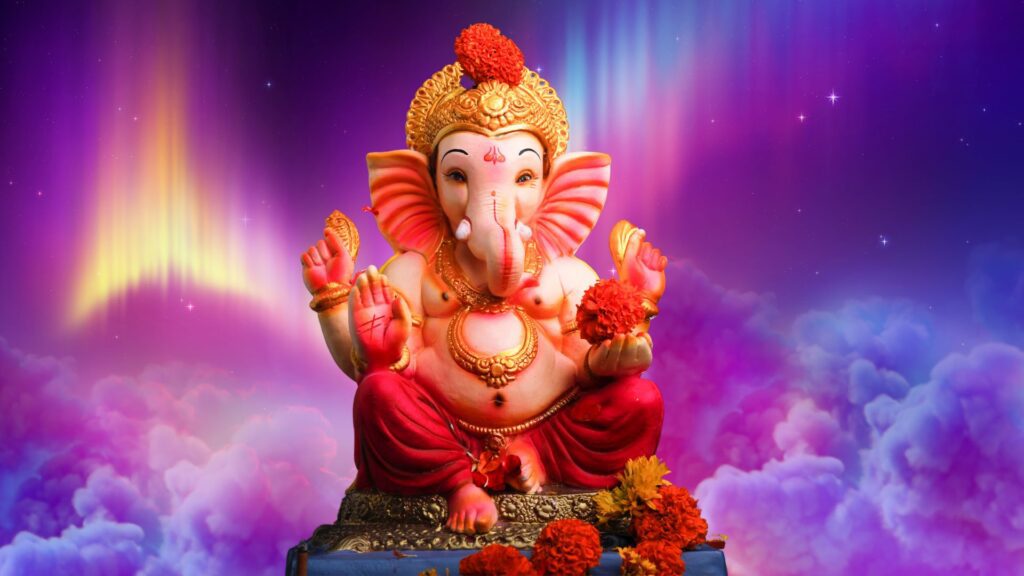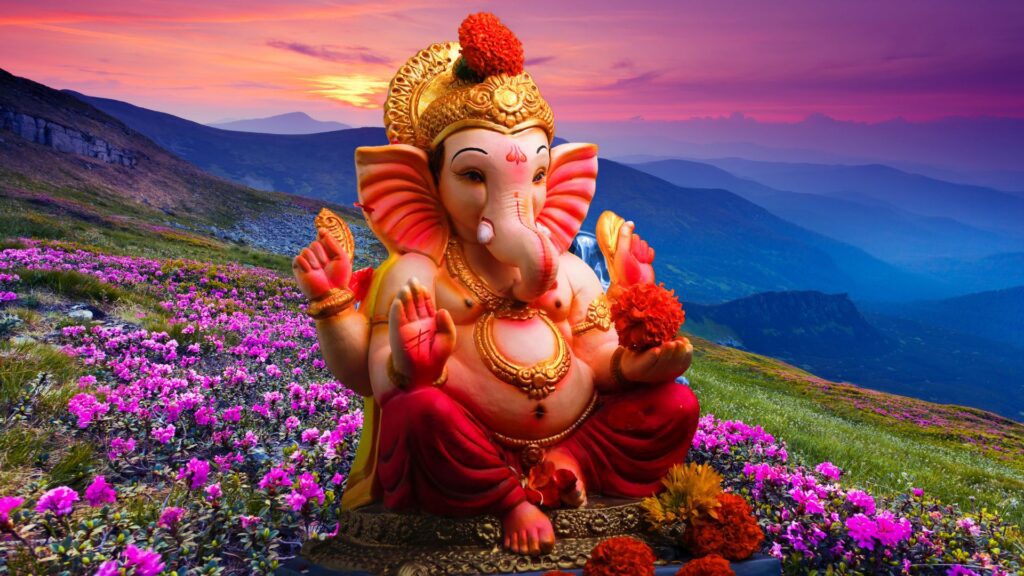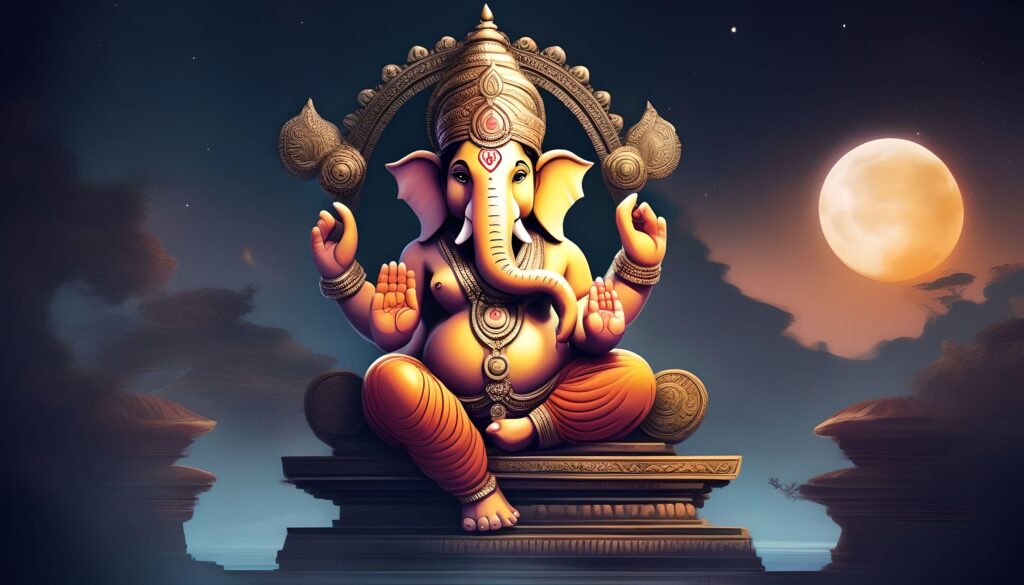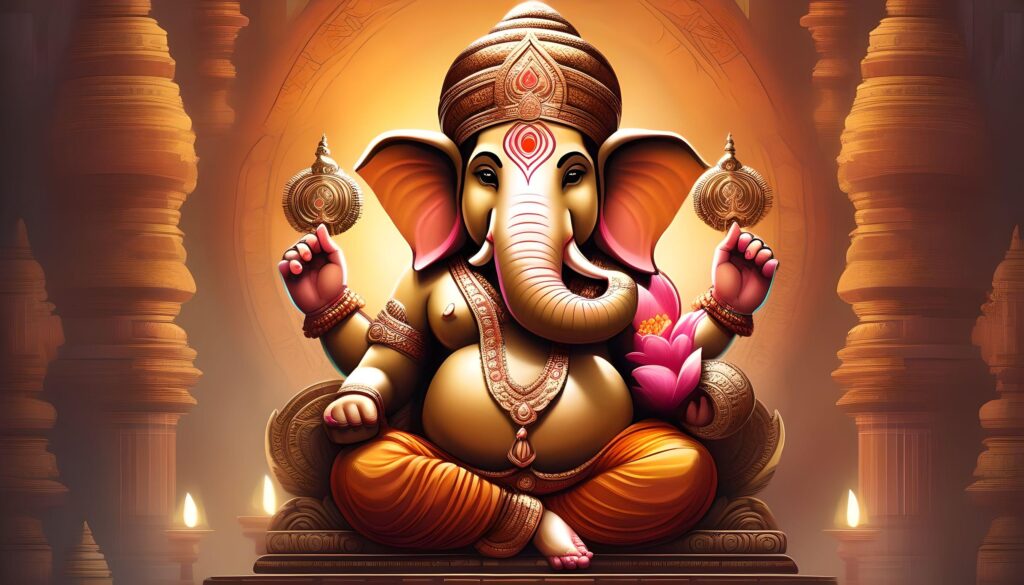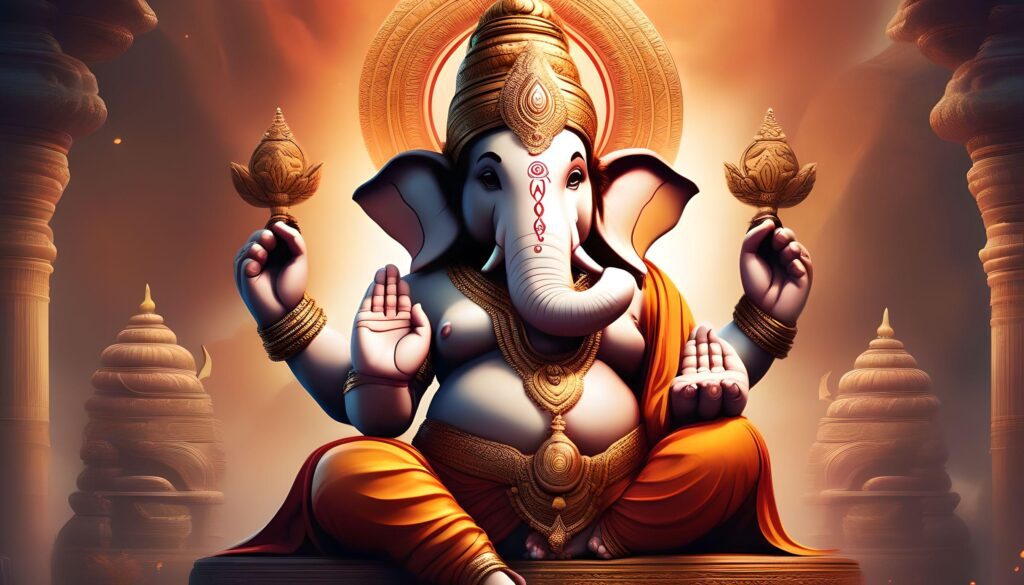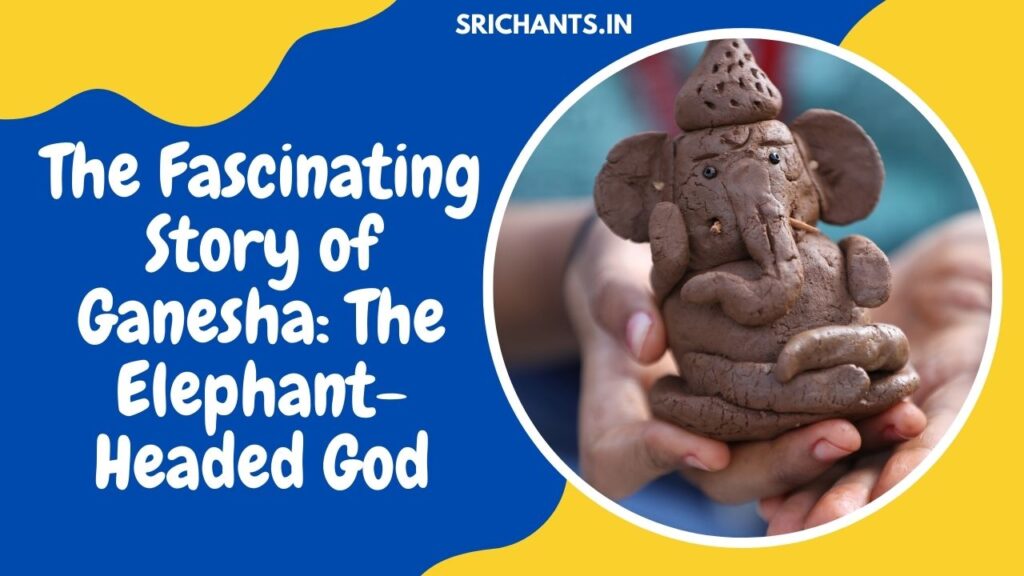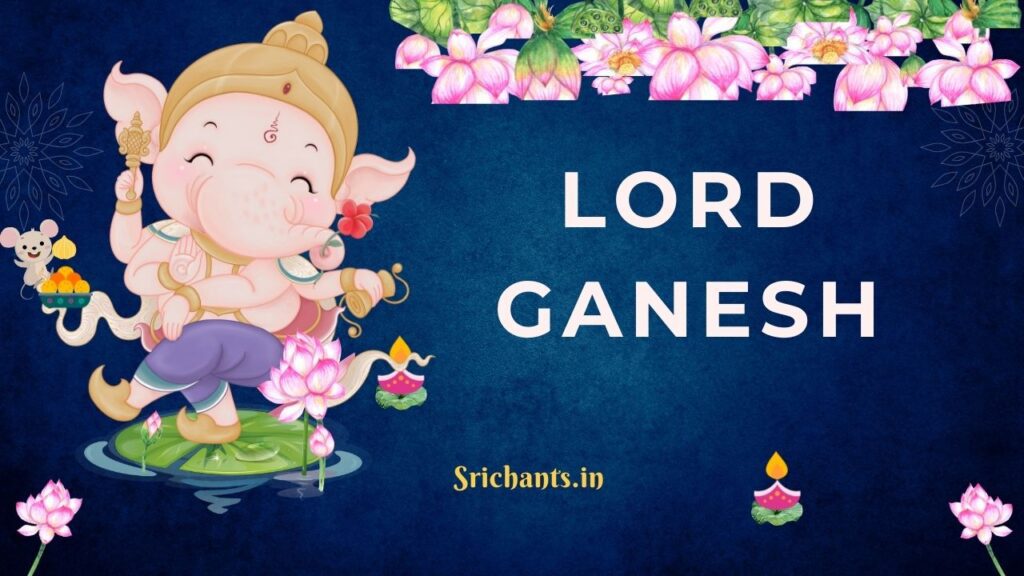Ganesha Symbolism : The Wisdom of ganesh symbol in Hinduism
Introduction
Lord Ganapati, also referred to as Ganesha, is among the holiest figures in Hinduism. His divine attributes include the power to eliminate barriers and the patron deity of intellect, wisdom, and fresh starts. This article aims to delve into the intriguing facets pertaining to the role of Lord Ganesha in Hinduism, his symbolic significance, as well as his relevance in Ayurveda and Indian herbal medicine.
Origins and Symbolism
The Remover of Obstacles
The universe is frequently compared to a cosmic mechanism in Hindu scriptures, wherein distinct deities are entrusted with the responsibility of overseeing various facets of existence. Ganesha occupies a significant role in society as the deity responsible for eliminating impediments. Hindus congregate in the presence of Ganesha prior to commencing significant undertakings, including matrimony, initiating a new business venture, or venturing on a spiritual expedition. It is believed that Ganesha ensures success in all undertakings and clears the way.
The Guardian of Wisdom and Esoteric Knowledge
Additionally, Ganesha is revered as the protector of esoteric wisdom. Regarded as the preeminent deity of astrology, He possesses a profound comprehension of the ways in which the planets influence the karma and fate of individual souls.
A considerable number of adherents of Vedic science petition Ganesha for clemency by reciting the incantation “om gam ganapataye namaha,” which translates to “I prostrate before Ganesha, the eliminater of impediments.” It is believed that reciting this mantra will grant one access to Ganesha’s blessings and eliminate any obstacles encountered along the path to spirituality.
The Son of Shiva and Parvati
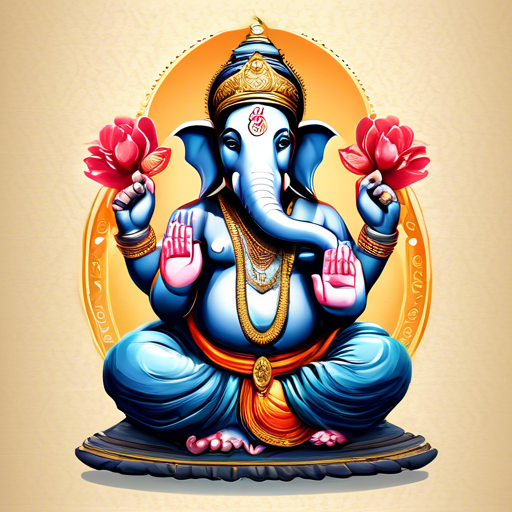
Ganesha is the progeny of the paramount deity Lord Shiva and the goddess Parvati. Diligent narratives abound in Hindu scriptures concerning the progenitorship of Ganesha. The devas (gods) reportedly beseeched Shiva for assistance against the demons that were harassing them, according to a well-known tale.
Shiva conceptualized Ganesha while holding a trident and the cranium of an elephant. Ganesha gained notoriety as the devas’ protector and the mind-born son of Shiva. In another story, Parvati gives existence to a young boy by sculpting him from oil and dust. Unaware of the boy’s true identity, Shiva engaged in combat with him and ultimately severed his skull. Shiva resurrected Ganesha by substituting her cranium with that of an elephant upon discovering the truth.
The Wisdom and Intelligence of Ganesha
Ganesha is widely recognized for his intelligence and sagacity. Ganesha, in a contest with his sibling Kartikeya, showcased his celestial prowess by encircling his parents, Shiva and Parvati, whereas Kartikeya departed in an aerial pursuit to encircle the earth. Ganesha, having realized that his parents symbolized the epicenter of creation, was proclaimed the victor. The significance of honor and reverence for one’s parents, which is a fundamental value in Hinduism, is highlighted in this tale.
Ganesha’s Role in Transcribing the Mahabharata
The significance of Ganesha in the transcription of the epic Indian epic Mahabharata cannot be overstated. Upon deciding to compose the epic, the sage Vyasadeva requested Ganesha to serve as his scribe. Ganesha consented, albeit with the stipulation that Vyasadeva would speak ceaselessly through the entire account. In response, Vyasadeva mandated that Ganesha commit each stanza to paper solely after acquiring a complete understanding of its essence. Ganesha accepted and transcribed the Mahabharata using his fractured tusk as a pen. This narrative exemplifies Ganesha’s profound comprehension and subtle intellect.
The Form and Symbols of Ganesha
In Hinduism, the form and sacrosanct symbols of Ganesha have profound significance. His enormous elephant cranium represents sagacity and comprehension. His slender stomach symbolizes the cosmos, whereas the serpent entwined with his midsection represents the vital force that binds the universe. The vahana, or vehicle, of Ganesha is a rodent, symbolizing a wandering intellect that can be subdued through the application of knowledge. Each of his four palms contains a symbolic object. The sweet represents the rewards of spiritual discipline, the axe signifies severing ties, the rope represents propelling an individual toward the pinnacle of achievement, and the palm bestows protection and favors upon those who traverse the spiritual path.
Ganesha in Indian Herbal Medicine and Ayurveda
Ganesha’s Connection to Ayurveda
The ancient Indian medical system known as Ayurveda is intricately linked to Hindu deities, such as Ganesha. Balance between the body, mind, and spirit is emphasized in Ayurveda as a means to achieve optimal health and well-being. The alignment of Ganesha’s symbolism with the principles of Ayurveda is evident, as he personifies intelligence, wisdom, and the elimination of impediments that impede an individual’s holistic welfare.
Herbal Remedies Associated with Ganesha
Ganesha is revered in Indian herbal medicine alongside a diverse array of plants and botanicals. One such substance is Ashwagandha, which is alternatively referred to as Indian ginseng. Ashwagandha is purported to alleviate tension and anxiety, improve memory, and promote mental clarity. It is frequently employed as an adaptogen, facilitating the body’s adjustment to stressors and fostering equilibrium overall. Additional botanicals that are commonly linked to Ganesha are Brahmi, Shankhpushpi, and Jatamansi, all of which have gained recognition for their ability to enhance cognition.
Ganesha’s Blessings for Health and Well-being
Frequently, devotees of Ganesha beseech him for protection and wellness. By seeking the graces of Ganesha, it is believed that it is possible to surmount both physical and mental barriers that impede one’s general well-being. The intellect and wisdom of Ganesha are regarded as governing principles for making well-informed choices regarding one’s way of life, dietary practices, and general well-being.
Conclusion
Hinduism attributes great importance to Lord Ganesha, who is revered as the embodiment of intellect, the guardian of wisdom, and the removal of obstacles. His involvement in Ayurveda and Indian medicinal medicine serves to emphasize his profound regard for health and wellness. Through a comprehension of the symbolism and sagacity associated with Ganesha, one can entreat his favor in order to attain prosperity, sagacity, and general welfare in one’s existence.

